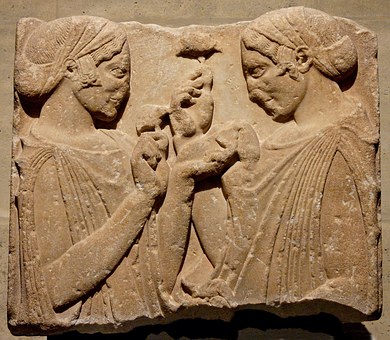The grays of ancient ethical eudemonism in the passage from Mythos to Logos A contemporary interpretation
Abstract
In this work, in general terms, the passage of myth to logos in Greek culture will be investigated. Within this framework, interest will be placed in the nuances, grays and interstices that refer to the concept of Greek eudemonism, basically in Aristotle; the purpose is to inquire about the importance of the enkratic and akratic ethical character in human behavior, according to the society that contains it. In particular and in the first instance, the concept of Aristotelian happiness and the importance of the concept of enkráteia will be investigated. In the second instance, an attempt will be made to determine the positions that different contemporary philosophers defend with respect to philosophical knowledge. In the third instance, it will be proposed to recognize in reference to the passage from the myth to the logos, if there are irrational elements (in comparison with the rational ones) that are in the Greek reasoning ideology.
Downloads


